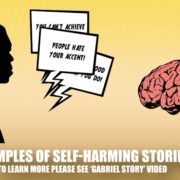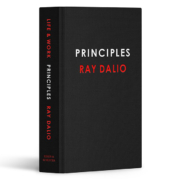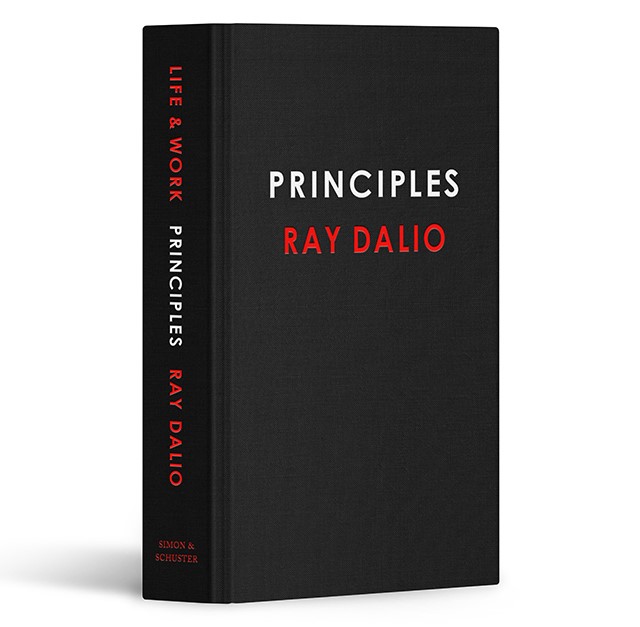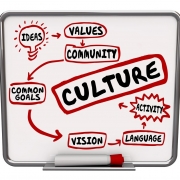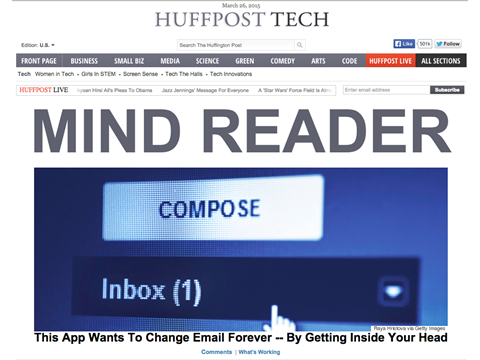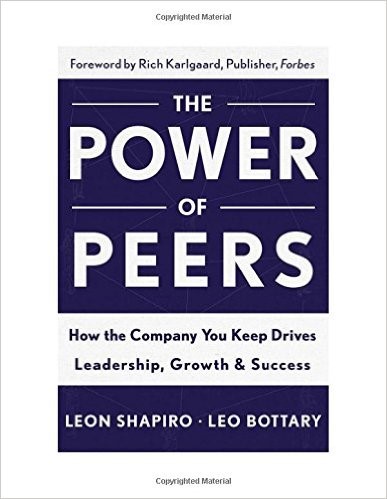“The Principles”… At Work
I just finished a three-month odyssey of reading Ray Dalio’s book, The Principles. It is a 592-page distillation of all that he’s learned in his very successful career. For those of you not familiar with the man, he built the Bridgewater hedge fund into a multibillion-dollar operation and is himself a billionaire. Time said he is one of the world’s 100 most influential people. He is known not just for his investing acumen but also his business leadership qualities.
His section on Work Principles goes from page 296 all the way to page 437. His outline summarizing the work principles was 23 pages. The point is- there is a lot there.
In this article, I will share some of what I learned from this reading and my observations that may apply to how you manage your career and workplace.
“For any group or organization to function well, its work principles must be aligned with its members’ life principles.”
Dalio begins with his four overriding principles about work.
- An organization is a machine consisting of two major parts, culture and people.
- Tough love is effective in achieving both great work and great relationships.
- A believability-weighted idea meritocracy is the best system for making effective decisions.
- Make your passion and your work one and the same, and do it with people you want to be with.
One of Dalio’s overarching themes is that of Transparency. It applies to all aspects of a business. Transparency with members, clients, and customers, and transparency with employees. Dalio says never to let loyalty to people stand in the way of truth and the wellbeing of an organization. In my 40+ years of workplace experience, this is a profound statement. I believe we try to please people out of self-preservation. Who wants to piss off the tribal leader anyway? Doing so only puts ourselves at risk.
Managers and leaders must be told that any implication of threat, favoritism, or looking the other way, will not guarantee job security but rather the exit door. It is a matter of trust. People in fear of radical transparency should be removed from an organization. The challenge is… who dares go first? Who dares to say, something’s not right here? Who dares to speak up at the risk of being shunned, retaliated against, or blackballed? Answer: Only those who stand on their principles. And this is the point. The decision by each individual to stand up creates a collective culture that stands up.
I once heard it said that “Culture is defined by how we collectively deal with our shit.” In a Dalio-run company, problems get an open forum where robust dialogue can lead to smart answers.
Dalio talks about the importance of defining the meaning in your work. This comes at both a macro and an individual level. From a macro standpoint, leadership should share what they believe to be the meaning in their work. From a micro level, employees should be encouraged to define that for themselves. This doesn’t happen by accident. It only happens through process and agreement.
So, if I surveyed your employees or even asked you, is there clarity about what your mission is? Clarity about where you exist to serve? Because of my speaking and training experience, I’ve been in hundreds of different offices all around the country. Only a handful of them do a good job of visually defining their mission. In those companies, you must be blind not to know what it is, because it is branded throughout the entire environment. If I went to your company, what story would it tell?
I love it when Dalio talks about delegation. Anyone who is successful has been through the fear and learning curve associated with delegating. The emotional blockage is getting over the reality that people make mistakes. When you delegate to people, they are guaranteed to make mistakes! Just like you did on your way to being an expert at something. But do you want to be an expert anymore at $25/hour work? Or would you be willing to let somebody make a few mistakes so you don’t have to do it anymore?
With my employees, I had a one mistake rule. I expected them to make mistakes, just not the same one twice. We figure out what we have to do so it doesn’t happen again. As Dalio said, “I don’t mind if they scratch the car, just so long as they don’t wreck it.”
I love when Dalio says, “Know that nobody can see themselves objectively.” Amen to that brother! Perhaps the greatest benefit of coaching is that it helps expose a side of yourself you weren’t aware of. My coaches have done that with me, and I’ve gotten better over the years at doing that with my clients. Removing our “blind spots” is an important formula for success. We all have plenty of data and are smart people. It’s our emotional blockages that tend to be the biggest challenge.
I love Dalio’s conversation around meritocracy. It goes along with his idea of transparency. How do you know if you’re succeeding in an organization? Half of the people at any one position are better than the other half. How do you define that boundary? How would you define excellent performance? That can’t be done simply by intuition. If you’re in something like sales, then you can look right to the data. What if it’s not as easy to capture the benchmarks? Answer: Do what you can do, so you create relevant benchmarks.
Dalio encourages us to move away from opinions about what success looks like to as much data as possible. If we consider an opinion, there should be strong logic behind it. Dalio spends many pages talking about improving communications and getting past disagreements.
Next, Dalio spends a bunch of time talking about hiring responsible people. Having a great hiring process, looking for people who “sparkle”, valuing diversity, constant training, evaluation, and feedback, and be willing to fire or as he says, “Shoot the people you love” and never lower the bar.
Here’s one I like: “Don’t try to be liked, try to be understood.” This is a big problem for managers, especially if they have been promoted out of the ranks. In my experience, it’s also about managers understanding they are responsible to the people they manage, and unless there is some legal obligation, they are not responsible for the people they manage. This is an enormous psychological distinction.
One aspect I found interesting was Dalio’s belief you should create an organizational chart to look like a pyramid with straight lines down that don’t cross. This runs contrary to most of what I’ve been observing and reading. Today, we talk about neural networks, where all parts interact with each other. I don’t believe that Dalio discounts the network effect. What he is harping on is the importance of knowing where the buck stops in terms of responsibility. Stay in your lane until it is appropriate to move out of it.
Dalio says everyone has too much to do. Amen! It wasn’t until my 40s that I’ve realized that highly successful people never get everything done. This is one reason why prioritizing projects and your time is so important. Managing from a carefully crafted calendar as opposed to a to-do list. Making sure the team is in alignment and in agreement on all responsibilities and deliverables. And realize, it will never all get done. Just make sure it’s not urgent or important matters that fall through the cracks.
Finally, Dalio reminds us that no principles, rules, or process can ever substitute for a great relationship.
Question: what principles guide your work?
Just What is Company Culture Anyway?
Over the years I’ve been asked to help train leaders on improving company culture. Companies are interested in this training because they believe it will produce more engage and productive employees.
Before I can help a leadership team, I try to reach an understanding of what they mean by “culture.“ As you can imagine, get five leaders in a room, and you’ll get five variations on that answer.
What follows is a list of factors to be considered when identifying and shaping company culture. It is often difficult to define where one aspect of culture begins or ends, and they tend to interrelate with each other.
- Level of commitment to company vision, mission, values and goals- for example, Nordstrom’s built its brand on his commitment to extraordinary customer service. That commitment began in the hiring process and is reinforced through continuous training, policies, and procedures.
- Quality of relationships – between management and employees, the company and its customers or clients, it’s vendors and other stakeholders. I consider Southwest Airlines to be a high-relationship culture.
- Quality of product or service delivery – for example, the Lexus culture is defined by “The relentless pursuit of perfection,“ which is why they produce the highest rated car year after year.
- How the company structures itself- is it a hierarchical, top-down driven organization or more of a thin on management, lateral one. For example, many defense contractors tend to be very hierarchical, just like their clientele.
- The company comfort level with risk- I would expect a law firm, bank or insurance company to have a very risk-averse I would expect the opposite working for an Elon Musk company.
- How does the company keep score?- what do we define as a win or a loss? Some company cultures are very bottom line oriented. Others are more focused on making breakthrough discoveries.
- How do we play and celebrate?- this is not just about having a ping pong table or dartboard in the hallway. Are people allowed to have fun? Pike’s Place Fish Market is Seattle decided to have fun selling cold, smelly and slimy objects. They even wrote the Fish Philosophy book about it.
- How do we acknowledge people?- I remember speaking with a woman at a law firm celebrating her 25th anniversary of work there. I was blown away when she told me not one person said a single thing to her on that day. You might call that a zero acknowledgment (As soon as I got back to my office I sent her a bouquet of balloons to make her day.)
- Are we family friendly?- are we comfortable with providing employees flexibility to maintain child care, elder care, medical treatment, and other obligations? I remember a recent news article where a company was chastised in the press for not allowing a woman to travel from Florida to Puerto Rico to see if her mother had survived the hurricane there. Apparently she had used up all of her leave bank before that catastrophe, and the company denied her request for time off. That is not a family-friendly culture.
- Do we have a growth culture?- some companies could care less about employee growth. They are simply hiring robots to do a job. In other environments, it’s all about continuous growth and improvement. They support that culture with significant training expenditures. The average expenditure for training hovers around 2-3% of payroll or $1,100 per employee.
- What stories do well tell? – there are the very logical aspects of culture, and there are the emotional ones as well. The latter is largely driven by the stories we tell, both internally and externally. Our “brand“ if you will. Do you spend more time telling stories about the past, the present or the future?
- The overall willingness to embrace constant change- some companies claim they have a culture that supports change but then do nothing to generate employee input. As with any of these cultural factors, failing to walk your talk significantly damages your culture.
- What is our compensation philosophy?- how you choose to pay people says a lot about your company culture. Are you trying to pay as little as possible to hire robots or are you paying above grade to get top talent? How do you use commissions, incentives, and bonuses to support your culture?
- How does leadership show up when they know they are right? Remember the saying “fish stink from the top of the head.” Well, culture starts there too.
- How do people show up when something feels unfair? We usually think of culture as a “sunny day” idea. But the culture of an organization, team or individual is on full display when something feels unfair. How we collectively deal with our stuff is the true benchmark of culture.
The bottom line is culture is what you are committed to doing and your “beingness” in the process.
Menage A Trois—Crystal, Me and You
In doing research on Job Security in the Techno Age, I stumbled upon a new technology known as Crystal.
Crystal was just launched in its beta format and purports to give you a better way to communicate through email and other methods. Coincidentally, last week I came across a Note to Self podcast about Crystal, where Crystal’s founder, Drew D ‘Agostino, shared some interesting insights on the tool and his goals with it.
Crystal scours the internet for information on you and then produces a personality profile on you with a percentage of accuracy. Since I have a decent web presence my profile was deemed 95% accurate. The profile of my wife who is nowhere to be found on the web, came in with a 54% accuracy… which makes me wonder how it could be labeled as “accurate” at all. Even she asked me, “How did they know this about me?”.
Crystal has produced an algorithm which feeds data scoured off the web into the 64 personality profile types produced by DISC and similar programs. My guess is I’ve taken probably a half dozen DISC profiles since graduating college. On average I found them to be fairly accurate. You can look at something and say “that’s not me”… but is that true? How well do we really know ourselves anyway?
Crystal says it can help you to communicate with someone else based on their profile. How to send a more effective email, how to talk to them on the phone, how to write a note. It all seems creepy, but are you really surprised? In short order every customer service representative and eventually every AI robot will have a profile on you that shapes how they communicate with you.
We all want to communicate better whether we trying to land a big deal or a first date.
Challenge is when we use these tools we want them to narrow our view of someone. We want to pigeon hole them because it will make our lives simpler. We’ll produce better results. Be happier. But, we have to watch the overreliance on these tools. We have to watch the losing what is left of the human touch.
Check Crystal out. First on yourself, then on your friends and family. See how accurate you think it is. Notice where you feel comfortable about the results—60% accuracy, 80% accuracy, 90%? What’s your standard for validity? You might even order a DISC profile and then compare it to Crystal to see how good a job it did in assessing you. You can also register on Crystal and “clean up” your profile, and ask other to contribute to that effort.
You can expect that in the near future most every customer service representative, whether human or a robot, will look up your Crystal profile before contacting you. It may be to upsell you on internet services, collect a bill, or follow up on an order. Before you know it, the whole world will be speaking to you just one way….based on your profile. How horrible will that be? There will be no variety in the buttons we get to push or the opportunities we try to sell you. We are all becoming an algorithm.
So now let’s talk about my profile for a minute. I looked at a few of the previous Disc profiles I’ve taken over the years and compared it with the Crystal results. It was accurate much of the time. But so are horoscopes—aren’t they? What if their usability is no greater than reading the horoscope of that loved one or friend? What if these tools, like a horoscope, mislead us?
My profile and feedback on it [in brackets]

When speaking to Don…
- Emphasize the future [Definitely. The past is so yesterday]
- Tell a few jokes [Good ones please or it backfires]
- Talk about abstract philosophies or ideas [I was a philosophy minor and enjoy a good thought session but only for about 30 min.]
- Use self-deprecating humor (don’t take act like you take yourself too seriously) [Please don’t take yourself too seriously]
When emailing Don…
- Use emotionally expressive language [ OK I guess]
- Appeal to his feelings to drive him to action [But please not just that. This profile missed a big part of me- the logical lawyer guy. I use both sides of my brain. So state a case!]
- Use an emoticon :) [Not really. Seems stupid usually]
- Write with short casual language and abbreviations [My time is all I’ve got so please use as few words to express a thought as possible]
When working with Don…
- Recognize his achievements verbally [Yup]
- Express criticism in person or on the phone [Never in an email]
- Send a reminder the day before a meeting [ I can’t stand being late for anything]
- Schedule meetings casually (i.e. tomorrow afternoon) [Only works when my calendar is wide open]
It comes naturally to Don to…
- Exaggerate details when telling a story [Heck, I’m a professional story teller]
- Feel sad if an accomplishment goes unrecognized [For a moment and then I get over it fast]
- Openly discuss emotions [I can handle that…many can’t]
- Enjoy a story more than a list of facts [I make a ton of checklists but love a good story]
It does not come naturally to Don to…
- Feel annoyed by an exaggeration [Not so sure about that. I can’t stand B.S.and call people on it.]
- Pause a conversation to correct something inaccurate [ I’ve learned not to interrupt others but will correct myself immediately]
- Approach problems cautiously and methodically [I wonder how I ever managed to litigate all those cases.]
- Cut a conversation short to get something done [There’s a fine line between being urgent and rude]
Final thoughts…
Most of us show the world who we want to be, but not necessarily who we are. As on any dating or career website, we’re more attractive, confident, experienced, and likeable than could ever be true. The great communicator, whether they be a customer service rep, sales executive or a lawyer, can speak to our deepest needs, not just the phony surface ones.
It will be interesting to see if some company flat out says: Why don’t we beat Crystal, Facebook, Google, and everybody else to the punch? Why don’t you fill out this extensive questionnaire so you can tell everybody exactly who you think you are, what you want and every advertiser can have at it. It’s what Amazon is doing with your purchase history taken to the extreme.
This is just the beginning. It only gets stranger, scarier and more interesting from here.
So where does Crystal pull its data from—the answer is every place it can. And that will always be the answer. Unless it’s been protected by a password, the information is fair game. And data collection is only getting better and the algorithms are only getting tighter. As one commentator, Alex from Texas stated, “Life according to Google search”. He was saying that depending on who you are, Google…and everyone else… will provide different search results to the same query. Framing your world according to the internet presence you created. Living in your own private Matrix.
These algorithms seek to simplify our lives in a very or Orwellian way.
Imagine this: In the future your brand will be co-opted by an algorithm. You are what the algorithm says you are. Your perception of who you are doesn’t matter. How scary is that?
Is there something inherently evil in technology? I don’t believe so. Technology is a tool and like any tool it can be used for both good and bad reasons. However some of our tools have become powerful. Whether it’s the ability to steal identities or to mold them or to intrude on them or to ridicule them, the weaponry is easily available. In this heightened game of spy vs. spy there are sure to be a whole new class of winners and losers.
Part of the human response will be to break out of the digital box. Read a good paperback. Do something outdoors with your family and leave all the gadgets behind. Meditate. Have conversations that last longer than five minutes. Get more sleep. Prepare healthy food. Exercise. Ask how you can simplify your life.
PS Crystal says I’d have a good old time with President Obama!

The Power of Peers
I have had the wonderful opportunity to present to over 350 Vistage CEO groups nationwide. I’ve had a firsthand opportunity to see the Power of Peers in action. Now I am a Chair for the first Vistage HR group in California.
When looking to build any peer group the 5 part formula is:
- Select the right peers—this involves reflection on whether you are well suited for a group experience, and whether a particular group is right for you.
- Create a safe environment—conversations must be confidential and free from judgmentalism.
- Utilize a smart guide—maximizing the potential of any group depends on great leadership.
- Foster valuable interaction—conversations must be directed to what really matters to help members achieve their goals.
- Be accountable—your fellow members will expect you to do what you say you will do.
I was first introduced to the concept of peer groups in Napoleon Hill’s Think and Grow Rich. He discusses the value of The Mastermind group. It is an invaluable part of the success formula.
Whether you join Vistage or a similar group you can put Peer Power to use at work, at home and in the community.
How do you take advantage of the Power of Peers?

